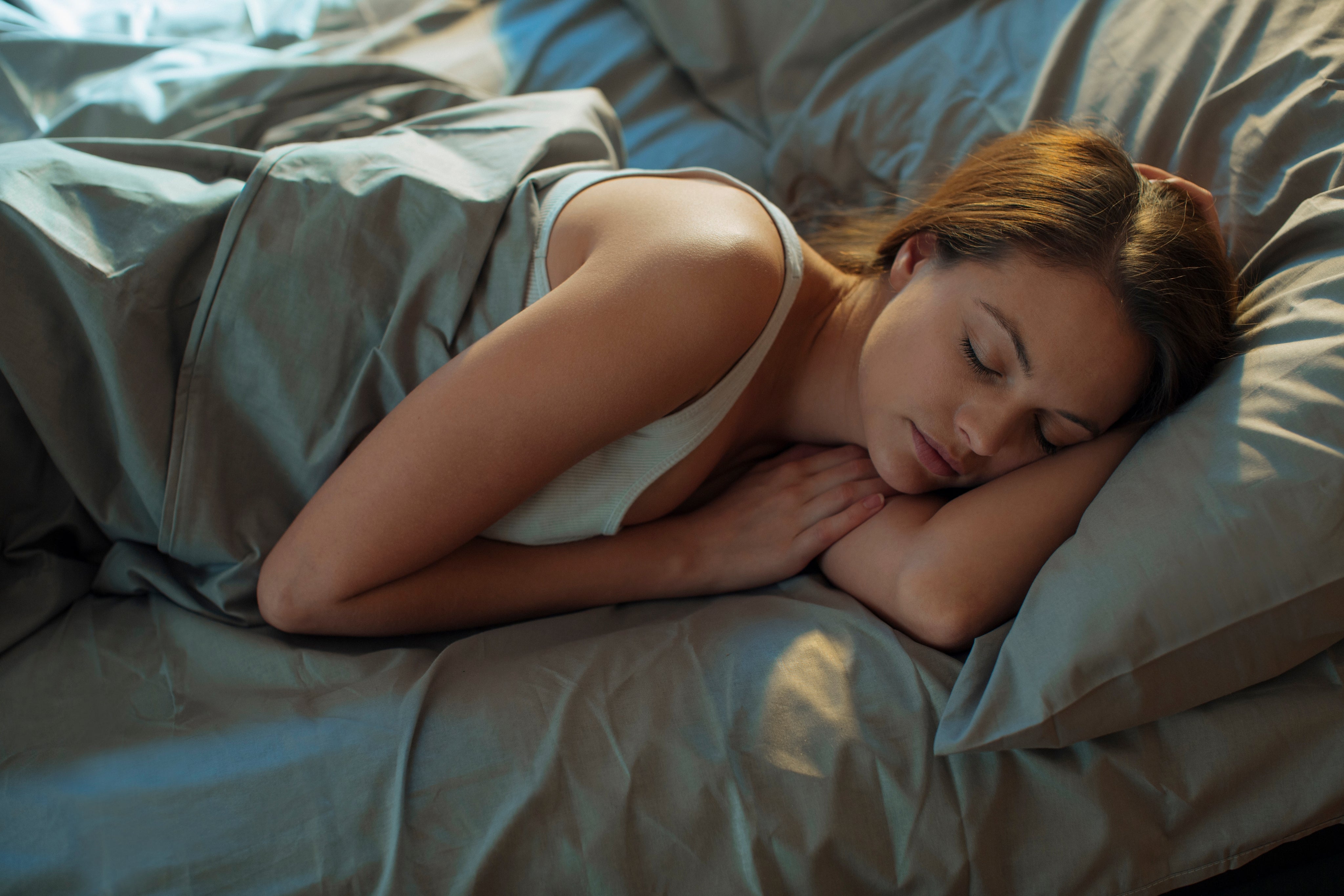WHY IS SLEEP IMPORTANT?
We tend to think of sleep as a time when the mind and body shut down. This is actually not the case; sleep is an active period in which a lot of important processing, restoration, and strengthening occurs. Sleep’s vital role is to help us solidify and consolidate memories.

CAN WE CATCH UP ON SLEEP?
While our bodies can’t exactly “catch up” on sleep, we can nap efficiently for our bodies. By keeping naps 10-20 minutes long, we can achieve up to stage 2 of sleep which allows us to feel energized and not groggy and is more effective than a cup of coffee. (Source)
WHAT IS A CHRONOTYPE?
Chronotype affects the “phase relationship” of our circadian clock. Morning types have earlier-phased circadian rhythms than evening types. (Source) All of that is a fancy way of saying that you’re either predisposed to being an early bird or a night owl!
IS EXERCISE BEFORE BED INTERRUPTING MY SLEEP?
There is no significant proof that vigorous late-night exercise does not disturb sleep quality. However, it may have effects on cardiac autonomic control of heart during the first sleeping hours. (Source) Everybody responds a bit differently to exercise. Generally speaking, it’s more commonly advised to rise, shine and sweat. If your schedule doesn't allow you to exercise in the morning, it’s recommended that you time out your evening sweat session at least 2-3 hours before heading to bed. (Source)
WHAT ESSENTIAL OILS ARE BENEFICIAL FOR SLEEP?
Remember that oils tend to support our body best when used in synergy. Choosing a blend over a single note is our favourite way to get the best of everything! Our favourite essential oils used to make our dreamy blends are:
- Jasmine: Eases nervousness and supports relaxation
- Orange: Calms and balances the body
- Chamomile: Can support with restlessness to help sleep
- Valerian: Soothing and restful
- Vetiver: Relaxing and grounding
For more information on helpful essential oils check out our Ingredient Garden.
DOES WAKING UP IN THE MIDDLE OF THE NIGHT IMPACT QUALITY SLEEP?
During the night, your body progresses through different stages of sleep. If one stage is interrupted, your body has to reset and start going through the stages again, meaning you may never get to the deep, restorative sleep that occurs during the later stages. To avoid further sleep problems; activity including food intake and water should be reduced to a minimum if any at all, roughly two to three hours before getting shut eye. (Source)
DOES THE LIGHT IN YOUR ROOM HAVE AN EFFECT ON YOUR SLEEP?
Light is one of the most important external factors that can affect our ability to get a good night’s sleep. It does so both directly, by making it difficult for people to fall asleep, and indirectly, by influencing the timing of our internal clock which can affect our preferred time to sleep. (Source) Light influences our internal clock through specialized "light sensitive" cells in the retina of our eyes. These cells tell the brain whether it is daytime or nighttime, and our sleep patterns are set accordingly. Closing your blinds and wearing and eye mask can great support you in if you’re currently experiencing a lack of sleep. (Source)
WHAT ARE THE BEST ESSENTIAL OILS TO DIFFUSE AT NIGHT?
There are many blends that can support in creating a calm bedtime oasis and encourage a serene sleep environment. When it comes to choosing the perfect blend for you, consider choosing a smell that naturally provides a sense of peace. Our favourites are:
- Tranquility Relaxing Diffuser Blend
- Goodnight Grounding Diffuser Blend
- Dream State Restful Diffuser Blend
- Peaceful Slumber Sound Sleep Diffuser Blend
Try all these restful blends in our Sweet Dreams Restful Diffuser Blend Collection
HOW DO I CREATE A NIGHTTIME RITUAL FOR MYSELF?
Our bodies will all respond differently to cues in preparation for sleep. The most important thing to consider when developing a sleep routine is that it needs to work for you in order to help you stay asleep! You can do this by (Source):
- Prioritizing: Where is sleeping on your current list of priorities? Does it get the attention it deserves in order to restore your physical health?
- Relaxing: We all have different relaxation cues. What soothes you most under tension? This could look like a warm bath, slow stretching or simply lighting a few soy-organic candles and dimming the lights.
- Celebrating yourself: shifting habits can take time, start with small steps and celebrate your victories along the way. This also helps you determine what’s working well for your body.
- Unplugging to recharge: Is your relationship with technology serving you? Do you currently feel that technology encourages your current sleep deprivation? If so, it may be time to create some healthy boundaries in order to create a better sleep environment.
- Ditching the Alarm: Healthy sleep cycles can create natural waking cues. Who wants to jolt their system awake with an alarm anyway?! Using a diffuser is one of our favorite ways to wake up in the morning and go to bed at night!

